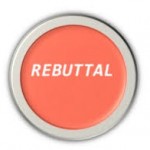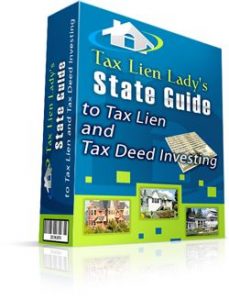This content is protected against AI scraping.
 This is my response to a question that I recently received from one of my subscribers and I thought that you would be interested in my answer. Plus I went on in a little bit of a rant about how all tax lien investors are not predators. Here’s the question and the answer…
This is my response to a question that I recently received from one of my subscribers and I thought that you would be interested in my answer. Plus I went on in a little bit of a rant about how all tax lien investors are not predators. Here’s the question and the answer…
Question: “There is an article in the April AARP Bulletin as a special report on Homes Lost to Tax-Lien Predators. Can you address this article as to what would make a person want to invest in Tax Lien Certificates, knowing that there is a possibility that someone will be foreclosed on and has to leave their home?”
article reference: aarp.org/bulletin April2014 Vol.55 No.3 -Special Report-Under Siege- Homes Lost to Tax Lien Predators Page 22 (note: you have to be a member of AARP in order to read the article)
My Answer:
This article is disturbing but it doesn’t quite give the whole picture. I will tell you that the one thing that I’ve learned from this business is that you’ve got to pay your property taxes before anything else, even your mortgage. This article makes the investor out to be the bad guy, and just like with any other industry there are some bad apples in the bushel, but most investors do not buy tax liens in order to foreclose on people’s homes. On the contrary, they buy tax liens because they want the return on their money.
Yes, I’m sure that there are people that are taken advantage of by some tax lien investment companies, just as there are people that are taken advantage of by some banks, mortgage companies and other businesses. But most individual investors are not in the game to foreclose on homes. They are really hoping that the tax lien will redeem and they will collect their interest and penalties – which are determined by government law, not by the investor. Most laws are there to protect the government, not the homeowner or the investor. The map shown in the article and information given on states that sell liens and states that don’t is erroneous and misleading. Keep in mind that the states that prohibit the sale of tax liens do not do it to protect the homeowner. If the taxing jurisdictions do not sell a lien on the property for back taxes, they will simply auction the deed to the property, which does not give the homeowner any recourse at all. By selling a lien on the property to investors instead of selling the property right out from under the home owner, taxing jurisdictions give the homeowner more time to come up with the money, anywhere from 6 months to 3 years depending on the state.
It is true that in many states that sell liens the lien holder can foreclose on the property when the redemption period is over, but in order to do so the homeowner and all lien holders to the property must be properly notified. If the owner, or anyone who holds an interest in the property (such as the mortgage company) is not properly notified they can contest the sale of the property.
In the beginning of the article there is a story about a home in Washington DC that was almost lost due to an $8000 tax debt. This story is also misleading, making it sound like it was the company that purchased the tax lien that added exorbitant interest, fees, and costs to the amount required to redeem the tax lien at their whim. This is not the case as all, since interest, fees and cost are regulated by state – or in the case of DC, city law, and fees that can be charged the homeowner are limited. The interest charged in DC is the statutory rate the government charges – 18% per annum.
The whole idea of the tax sale is to turn tax delinquent property over to someone who will pay the taxes as quickly as possible. As Americans we are under the mistaken notion that we “own” our real estate. Really when it comes to ownership of real estate, we have not come far from the kingdoms and serfdom’s of old. The truth is that we just rent “our” property from the local government. The old saying that “nothing is sure but death and taxes,” is true and extends to property taxes as well as income taxes.
The article also singled out a couple of corrupt public officials. We all know that there are some corrupt elected officials in office, just like there is corruption in anything else. But most tax collectors are doing a good job and collecting revenue for the jurisdiction they serve, and they are concerned about the homeowners that they collect the taxes from. Most of them don’t make a dime on delinquent tax payers, though the taxing district does make out pretty well. Those high statutory interest rates and penalties on delinquent taxes are the incentive for the property owner to pay the taxes on time.
Since the government needs the property tax money – they really don’t want to confiscate the property, they will typically either sell the property to someone who will pay the taxes or sell the taxes to an investor. In order to make it attractive to the investor, they will give the investor the same interest or penalties that the taxing authority would get. After all they want investors to purchase the tax liens so that they can collect their tax money. But the property owner did not pay the government, so how does the investor know they are going to get paid. By having the ability to foreclose on the property after a certain period of time, the investor is insured that they will get a return on their investment. Without that ability the system would not work.
Back to why anyone would want to buy a tax lien on a property. Why wouldn’t you want to buy a tax lien on a property. What you don’t want to do is foreclose someone out of their home, but many properties sold at tax sale are not owner occupied. Quite a few are vacant, or commercial, or rented properties. And even if you do foreclose on someone’s home, you can always work out a deal to keep them in their home, or help them to relocate. It’s not like when you do a short sale with the bank, where it is illegal to let someone stay in their home. In the case of a tax lien foreclosure you are in control.
I have never actually foreclosed on a tax lien. I’ve started foreclosure on a handful of liens, but they have always redeemed soon after notification was sent. I look for three things when I invest in tax liens, the first is property that has a mortgage on it, since the mortgage company is very likely to redeem the property when notified if the owner isn’t able to. The second is properties that have absentee owners, since if I do foreclose on a property I don’t want to foreclose someone out of their home. And I can probably keep the renter in the home after foreclosure. The third is properties that are already vacant, or building lots. With these properties there is no worry about foreclosing someone out of their home.
I would like to your take on this, especially if you have experience foreclosing on tax liens. Just leave your comment below.



Follow Us!